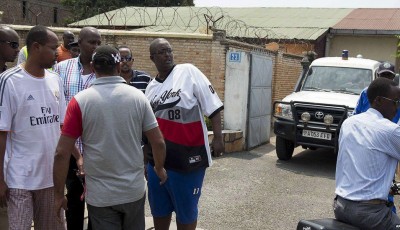African Union: Burundi at risk of sliding further into chaos
The former head of Burundi’s army during its 13-year civil war has been assassinated.
Colonel Jean Bikomagu, a key figure in the former Tutsi-dominated army, was gunned down in his vehicle by unidentified assailants as he was about to enter his home in Kinindo, a southern district of the capital Bujumbura, a family member told AFP.
“This despicable act, and multiple other acts of violence recorded in recent months, illustrates yet again the gravity of the situation in Burundi – and the real risk of seeing a further deterioration with catastrophic consequences both for the country itself, and for the whole region”, said Dlamini-Zuma.
Since the outbreak of violence in Burundi in April, at least 96 people have lost their lives, mostly opposition supporters, while some 600 people have been arrested and at least 60 torture cases reported, the official added.
The assassination of Bikomagu comes on the heels of another high-profile killing earlier this month, in which gunmen shot dead a former security chief and close ally of Nkurunziza, Adolphe Nshimirimana.
A day after Nshimirimana’s killing there was an attempted assassination of a human rights activist, Pierre Claver Mbonimpa, who had spoken out against the president’s third term.
Burundi plunged into turmoil late April when President Pierre Nkurunziza announced his decision to run for a third consecutive five-year term, a move which was denounced by the opposition as contrary to the country’s constitution and a 2006 peace deal that ended 13 years of civil war.
The growing violence has fueled fears that the tiny central African country could be on the path to another civil war.
Col Bikomagu led the Tutsis, while Mr Nkurunziza was a member of the a Hutu rebel group.
Another pro-government account, however, said it was a pity that the colonel would now “not be tried for the hundreds of thousands of Hutu killed in Burundi”.
Dlamini-Zuma called for the “need for dialogue and consensus to find a peaceful and lasting solution to the current crisis”.
The opposition boycotted the vote in which Nkurunziza gained 69 percent of ballots, prompting violent nationwide protests.









